
States will continue to press for price controls, while FDA will tackle opioids and promote innovation.
Jill Wechsler is Pharm Exec's Washington Corespondent

States will continue to press for price controls, while FDA will tackle opioids and promote innovation.

If confirmed as the next secretary of the Department of Health and Human Services (HHS), Alex Azar says that a top priority is to make drugs more affordable.
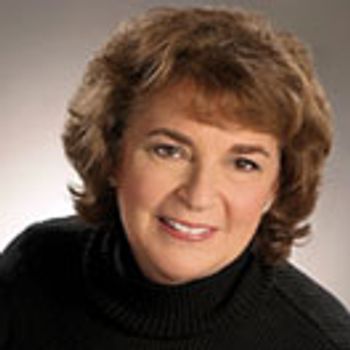
By enacting landmark tax reform legislation that makes major changes in the corporate tax structure, Congress this week delivered a significant Christmas present to President Trump - and to industry, writes Jill Wechsler.

In 2017, patients gained access to the first gene therapies and more orphan and breakthrough drugs.

Experts slam drug prices and endorse government price negotiations and curbs on drug advertising.

As FDA and industry near the halfway mark in the process for establishing a national electronic drug tracking system by 2023, there’s concern among pharma companies, wholesaler/distributors, and pharmacists about meeting the deadline

Jill Wechsler discusses the hot topic of how FDA should oversee combination products that incorporate a digital health component.

While most pharma companies are in partial production using generators, few are operating at 100% capacity, writes Jill Wechsler.
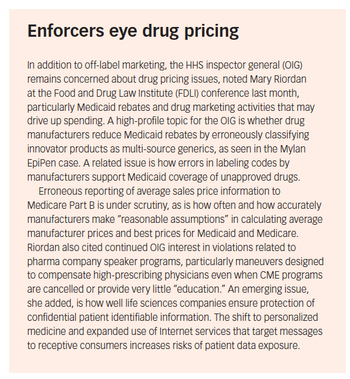
Agency leaders go slow in weighing changes to DTC ads and off-label marketing.

Agency leaders go slow in weighing changes to DTC ads and off-label marketing. Jill Wechsler reports.

FDA is evaluating whether limiting warnings in TV commercials to the most serious adverse effects might be more informative for consumers than the current laundry lists of potential side effects.

The extensive volume of pharmaceutical manufacturing in Puerto Rico is driving FDA efforts to assess facility damage and logistical problems to ensure continued supply of critical medicines. Jill Wechsler reports.

While biopharma companies have pressed hard for clarity on the data required to gain market approval of biosimilars that can be filled by a pharmacist without prescriber pre-approval, the progress towards "interchangeability" has been slow. Jill Wechsler reports.

Drug pricing, right-to-try, opioids, and OTC improvements still on legislative agenda.

The federal Open Payments program is finally reaching its goal-to halt the adoption of multiple “transparency” initiatives by states and local governments with a national system for collecting and disclosing data on industry payments. Will it make a difference?
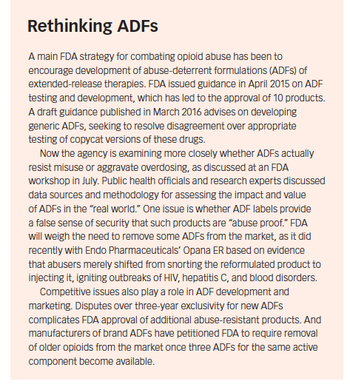
The growing toll requires new assessment of risks, expanded provider education, and more scrutiny of marketed products.

The FDA ruling that exempts biosimilar makers from waiting an extra six months after approval to distribute a new product should help overcome delays in future biosimilar sales, writes Jill Wechsler.

Congressional measures lack the support to move forward, writes Jill Wechsler.
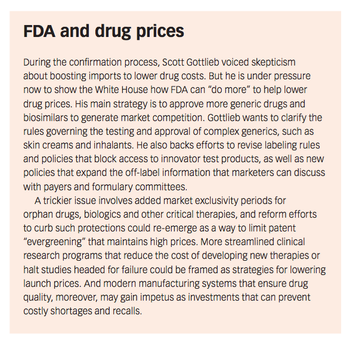
New legislation, administration priorities raise multiple challenges for new commissioner.

The Center for Biologics Evaluation and Research is gearing up to facilitate the development and approval of regenerative medicine advanced therapies (RMAT), as defined by the 21st Century Cures Act.

The Senate confirms Scott Gottlieb as FDA commissioner. User fee reauthorizations, a hiring freeze, and the opioid epidemic are a few of the issues awaiting the agency's new leader.
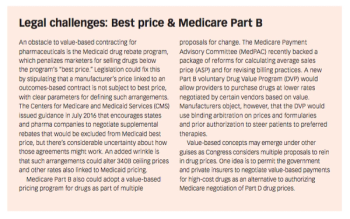
Payers and pharma companies seek outcomes data for evidence-based reimbursement deals.

Amidst hundreds of presentations on new developments in cancer research and treatment discovery at the AACR meeting this week, FDA policies for speeding promising new therapies to patients garnered a good deal of attention.

Greater patient involvement in regulatory processes is raising questions about whether the views expressed by such groups fully reflect broader public needs and values.
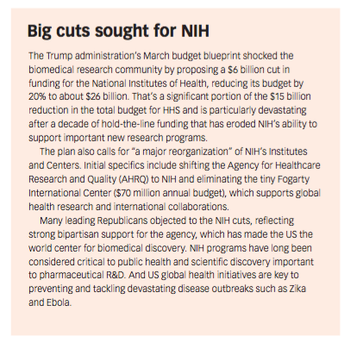
Jill Wechsler outlines how the new FDA commissioner tasked with curbing regulation, speeding approvals-and collecting more fees to do it.

Jill Wechsler outlines how the new FDA commissioner tasked with curbing regulation, speeding approvals-and collecting more fees to do it.

FDA efforts to speed more new generic drugs to market probably won’t do much to reduce high drug prices, writes Jill Wechsler.
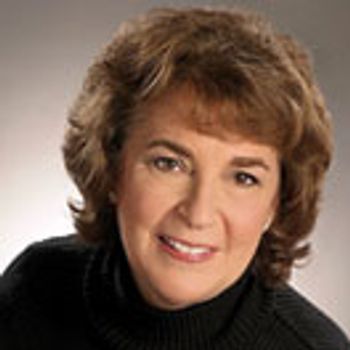
Attack on treaties and imports threatens international operations.


Congress is poised to tackle exorbitant drug prices through health reform and FDA legislation.